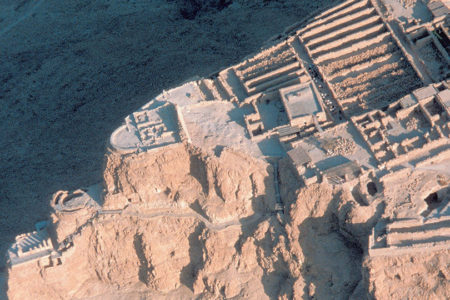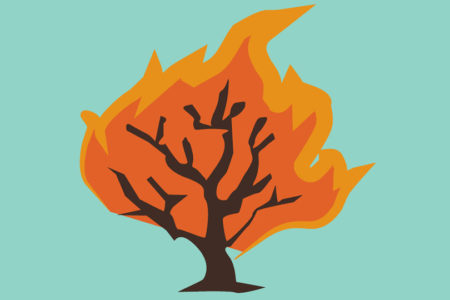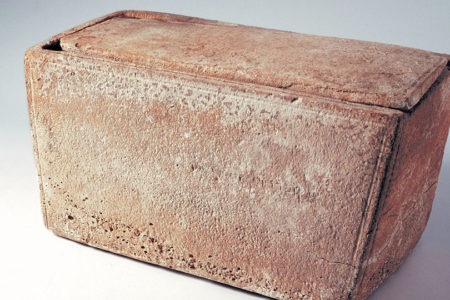Eye on the Middle East Jul/Aug 2003
A former U.S. ambassador to an obscure Third World nation recently contributed his opinion on TV as to why the spate of terror attacks in the wake of the war in Iraq. His remarks postulated his belief that America’s incredible victory over Saddam Hussein riled international terrorists to the point of turning up the heat on the United States and their coalition partners, including such Muslim collaborators as Morocco and Saudi Arabia.
In the same vein, a prominent Democrat and contender for the presidency blamed the success of the suicide bombings in the Saudi kingdom directly on President George W. Bush. The administration, he said, is in “complete disarray,” and the president is not sufficiently “engaged” in taking effective preventative measures or in “building relationships.” This despite the fact that Bush warned the Saudis five times before the bombing occurred.
Which brings to mind the curious fact that in almost every undesirable situation that develops, America somehow ends up the root of the problem. The situation is artfully contorted; and the bad guys, we are told, are only reacting to our noxious attitude of “triumphalism.”
This syndrome, long ingrained in the neoliberal mindset, now dominates the thinking of American Pop Culture devotees. We hear it in the reporting of practically every horrific crime perpetrated on some hapless victim: “There must have been a reason for someone to do something this terrible. I wonder what he (or she or they) did to provoke such a violent crime.” Thus the perpetrator becomes the victim; and the victim, the aggressor.
As terror attacks accelerate, and they will, a groundswell of such convoluted rationale will demand that American and Western powers cease provoking terrorists by trying to stop them. The popular line will be, “If we only leave these downtrodden and desperate people alone and provide them with enough perks, there will be peace and harmony.”
But there will not be peace; neither will there be harmony. This conflict is not about reason, harmony, and peace. It is an all-out crusade that is global in scope and obsessive in its desire to destroy or totally subjugate Judaism, Christianity, democracy, and the Western way of life. That’s what it is all about.
The suicide bombings in Saudi Arabia were not isolated cries for help from a deprived and desperate few. They were the assaults of jihad—Islamic holy war. And all that stand in their way, including Muslims of a less militant persuasion, are candidates for death.
Neither America nor Israel nor their allies initiated this conflict, now turning into a struggle for survival. September 11, 2001, was not a reaction against some egregious wrong that America inflicted on innocent followers of Allah. It was a Pearl Harbor-style knife in the back of an unsuspecting and unprepared nation.
Israeli men, women, and children have not been shredded to bits by suicide bombers because they have not held out their hands in peace to the Palestinians. On the contrary, no rational person can claim that Madrid, Oslo, or Camp David were not legitimate efforts to find some reasonable accommodation to Palestinian demands. Israel made peace with Egypt and returned the Sinai. Jordan and Israel held out their hands in peace and, as with Egypt, achieved safe borders. In the intervening years Israel has never posed a threat to Cairo or Amman. The issue between Israel and the Palestinians has never been Israel’s unwillingness to give. It has been the Palestinians’ unwillingness to take—that is, short of taking it all.
The failure of many public officials and news media to clarify the crux of the conflict is a clear dereliction of responsibility. Until the world understands what the war on terror is really about, it will succumb to speculation, second-guessing, and disorienting guilt trips. It is not that the information is unavailable or that radical Islamists cloak their hate-filled motives. They preach them every Friday in many of the mosques. They proclaim them in state-run newspapers and over radio and television. Anyone who cares to know what Palestinian and other Arab leaders say in Arabic when not addressing Western audiences in English can easily find out.
After one of the May suicide bombings in Jerusalem, I viewed pictures of the demolished bus with the remains of some of the Israeli victims still inside. These photographs were not on the front page of any newspaper in the Western world. Had an unfortunate Palestinian child been the victim of collateral damage, that picture no doubt would have run with a banner headline.
What’s the difference? Why the silence? We need to know.






